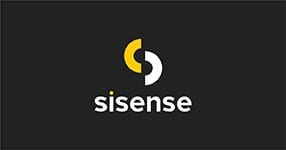
Rapid innovation in the use of analytics and data-driven technology, including artificial intelligence (AI), is shaping nearly every aspect of the modern world. From personalised fitness trackers to algorithms feeding Netflix users their next favourite series; this technology has vast potential to transform health care as well. And to some extent, it already has.
Data analytics is being used to drive innovation, helping diseases get detected sooner. It’s also moving care closer to home with telehealth offerings, for example. In addition, AI has been paramount in creating and rolling out COVID-19 vaccinations. It has also helped track positive cases with the UK National Health Service (NHS) Test and Trace.
The UK government recognises the potential and sees the power of connected health care (technology-enabled care). The government believes it’s not a time to slow down but to build on the momentum unleashed by the pandemic. Its current strategy is primed with bold commitments, using data to deliver better treatment and results for patients as well as better research and support for healthcare professionals.
Data analytics drives better care
But is it enough? As a world-leading centralised health provider, the NHS has one of the largest depositories of healthcare data at its disposal. Therefore, AI should add tremendous value for patients and healthcare organisations. Yet, in practice, the NHS operates with multiple, outdated legacy systems — some of which are still paper-based.
Cementing its inadequacies, a report from the UK’s National Audit Office (NAO) reveals that the NHS is not progressing quickly enough with its transformation targets. This is due to a lack of proper funding, outdated IT systems, and unclear messaging surrounding its technology strategy. By embracing data analytics, the UK healthcare system could better support the population in this period of uncertainty and position itself for future growth. Here’s a look at how.
Six key benefits of data analytics in health care:
- Predict risks sooner: By collecting volumes of data, healthcare organisations can identify common symptoms and causes of conditions and diseases, helping doctors spot risks and implement treatment sooner.
- Stronger decision-making: Healthcare professionals can leverage big data to create unique and effective treatment strategies by exploring treatments that showed success in specific cases and connecting them to successful outcomes.
- Personalised care: Using big data analytics tools, hospitals and other healthcare centers can track patients that have repeated procedures or recurring conditions. They can use predictive tools to create a more tailored and success-oriented plan for their treatment in the future.
- Service delivery improvements: Hospitals can use software to predict busier times and appropriately plan to meet demand by scheduling more staff to reduce wait times. At the same time, by predicting when patients will be discharged, healthcare organisations gain a better idea of available beds.
- Improved record-keeping: Storing medical records electronically, as opposed to on paper, improves efficiencies in workflow by reducing the time required to pull charts manually. Additionally, electronic medical records (EMRs) improve access to comprehensive patient data, help to manage prescriptions, and provide remote access to patients’ charts, for instance.
- Cost savings: With data improving patient care and healthcare facilities’ efficiencies, treatment costs and other expenses can be minimised.
Three healthcare pioneers leading the charge
The following organisations, spanning vastly different corners of the healthcare industry, act as a model for those seeking progress. They not only understand that the right digital foundation is essential to facilitating better care by ensuring better outcomes, efficacy, and equity, they’ve acted on it.
Health care with faster and fewer denials
efficientC is a software platform that provides denial prevention technology, which accelerates revenue generation for hospitals. It combines the capabilities of a clearing house and claims scrubber with the power of analytics. This innovation enables hospitals and healthcare providers to get their claims paid by insurers faster and with fewer denials.
Thanks to its partnership with Sisense, efficientC has achieved a high degree of differentiation in the market. “We truly have the best product in the denial prevention space,” says Michael Schram, Director of Product Development and Strategy at efficientC.
“Sisense has been a game-changer and will continue to be as we move forward and extend our brand into the analytics and AI space.”
Improving patient care journeys
Then there’s Dutch-based SaaS provider Gerimedica, which focuses on delivering the best software and services for healthcare professionals in the aged care sector. In the digital transformation era, it recognises that the best software empowers healthcare professionals to harness big data and make decisions based on data-driven insights.
Noticing that EMRs were falling short of delivering insights that have a meaningful impact on the level of care patients receive, Gerimedica turned to Sisense for a solution.
With Sisense, customers are now fully empowered to deliver and improve patient-care paths based on actionable insights. “The power of Sisense is not only in the dashboards or the web app but also in notifications,” says Hamza Jap-Tjong, Head of Analytics at Gerimedica Inzicht.
“Health professionals now have access to alert dashboards that highlight the patients who are struggling or not making anticipated progress. They are able to connect the dots between clinical and operational data and focus their discussions on a handful of patients, which has really improved the way they give care.”
The power to improve patient outcomes and free up beds
Glytec is a third standout in the industry for its innovative use of business intelligence (BI) to propel the healthcare industry forward. With access to Glytec’s patented and FDA-cleared software and data reporting, healthcare providers have the analytic insights they need. This translates to improved patient outcomes, decreased length of stay and readmissions, and slashed instances of hypo- and hyperglycemic events during hospital stays. Even more, contrary to popular assumptions in the healthcare space, analytics also helps to significantly reduce the costs associated with insulin management.
By giving the healthcare community access to the right data with the support of Sisense’s BI and analytics platform, Glytec rapidly analyses patient data across health systems. It demonstrated how glycemic management correlated with outcomes for people hospitalised with COVID-19.
“The data is clear. While the shortage of PPE and frequent patient contact are a risk to healthcare establishments, appropriate glucose monitoring and management of insulin on an hourly basis is critical when compared to the potential mortality rate and the costs associated with longer hospital stays,” says Robby Booth, Founder and SVP at Glytec.
The future of health care is paved in business intelligence
Improved access to data insights impacts nearly everything in the world, from making automobiles safer to helping grocery stores stock shelves more efficiently. And in health care, this data might just save lives.
As vast amounts of data are collected across EMRs, ERPs, billing systems, and more, healthcare organisations need powerful end-to-end business analytics to prepare and analyse their data. This will provide a comprehensive, 360-degree view, providing a whole host of benefits all the way from providers to patients.


























